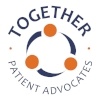
As a patient, your right to make informed health care decisions before receiving treatment or services is called "informed consent." In order for full informed consent to take place, you must completely understand the following (and be able to explain them in your own words, as opposed to just repeating medical jargon):
- Your diagnosis or suspected diagnoses
- Your doctor's recommended testing or treatment options
- The risks and benefits that you may experience from the recommended testing or treatments.
- What alternatives are available, this may include options that are "off the table" for you and why these are not recommended
- What will happen if you opt to wait or forego testing or treatment
The Importance of Informed Consent
Why is this important? Hearing about treatment options or a diagnosis for the first time can be overwhelming. As I’ve said in a prior post, typically patients immediately forget 40 – 80% of the information communicated during a doctor's appointment. The information that is remembered is incorrect 50% of the time. At best, that means you may accurately remember only 30% of what your doctor says.
That’s where informed consent steps in to help you.
Understanding all of Your Options
You need to get enough information about all of your treatment options, including their risks and benefits, in order to make a decision that’s right for you. The right decision for you is one that is in full alignment with your health goals, culture, ethics, and spiritual beliefs.
Your doctor may not include “no treatment” as one of your options. But it is always an option. If this is something you want to consider, ask your doctor, “What is likely to happen if I don’t get this treatment or have the test?” “What happens if I delay the treatment or test?” “What are there risks to waiting?"
Keep in mind that you can change your mind about whatever option you choose, even after a course of treatment has begun. But before doing so, make sure you understand the risks and benefits of doing so.
Supplemental Decision-Making Tools
Even if your doctor or medical team clearly explain your options, you might wish to use additional guides and tools before making your decision. These tools do not take the place of discussions with your doctor. Rather they provide you with additional information and perhaps prompt new questions for your doctor.
For example, the Ottawa Research Institute provides a wide array of decision-making guides, including the Personal Decision Guide. This walks you through a series of questions that guide you through your decision-making needs, next steps, and how others might support or view your decisions.
You can also look up the Institute's decision tools for specific procedures or treatments using this A-Z Inventory search tool. Examples I've found helpful include their pathways for helping choose a screening tool for patients with dense breasts or their decision tree for helping patients with enlarged prostates decide whether to have surgery or take medication.
Sometimes health decisions are not limited to tests and treatment options. For example, you’ve probably wondered how you can remain safe during the pandemic. The Ottawa Research Institute has a user-friendly, informative guide to help you decide how you interact with people outside your home during these ever-changing times.
Healthwise has a user-friendly database of decision tools for specific conditions, wellness, and health factors at different life stages.
Again, please remember that these tools and any others you may explore do not take the place of discussions between you and your doctor.
Consent Forms
Your doctor will likely ask you to sign a consent form regarding treatment or services. This is a legal document. The American Cancer Society provides this useful explanation of what your signature on a consent form means:
- You have received all the information about your treatment options from your health care provider.
- You understand the information and you have had a chance to ask questions.
- You use this information to decide if you want to receive the recommended treatment option(s) that have been explained to you. Sometimes, you may choose to receive only part of the recommended care. Talk to your health care provider about your options.
- If you agree to receive all or some of the treatment options, you give your consent (agree) by signing a consent form. The completed and signed form is a legal document that lets your doctor go ahead with the treatment plan.
Make sure you understand all of your options before signing this form. A health care advocate familiar with your treatment options can help you make sure your decision is indeed a fully informed one that best meets your needs. You can read more about utilizing and selecting an advocate here.
One Additional Benefit
Your medical team members aren’t the only people you need to share your decisions with. Also tell your loved ones -- especially the person you have chosen to make medical decisions for you in the event you’re unable to do so. You might also choose to write down your decisions formally in an Advance Healthcare Directive. I'll review this in more depth next month.
These discussions and written documentation help ensure your wishes are the guiding force behind your medical care. This will give you peace of mind and take the decision-making burden off of your loved ones, who won’t have to guess as to what your decisions would be.
Remember, your health and treatment options are yours to manage in accordance with your goals and beliefs. Make informed decisions. Your medical team and health care advocates can help you do so.



.gif?width=200&name=NAHAC-Member-Badge200x112+(1).gif)


